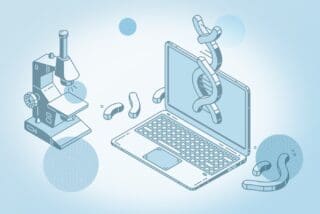The expected FDA approval of gene therapy for leukemia will kickstart a radically new type of cancer treatment. One of the new cancer therapies involves taking immune cells (white blood T-cells) from a patient, reengineering them to recognize and kill cancer, multiplying them, and then putting them back into the patient’s body.
“This has been utterly transformative in blood cancers,” said Dr. Stephan Grupp, Director of the Cancer Immunotherapy Program at the Children’s Hospital of Philadelphia. “If it can start to work in solid tumors, it will be utterly transformative for the whole field.”
The therapy was originally an experimental treatment developed at the University of Pennsylvania Cancer Center and licensed to Novartis with limited use reserved for severely ill patients. Novartis expects approval of another drug for lymphoma soon.
If it can work for leukemia, the door can be opened for other cancers like breast cancer, prostate cancer, and even mesothelioma. Solid tumors aren’t as easy to treat with the therapy, but clinical studies at a number of different cancer centers are currently underway.
In fact, research has shown how genetics may affect mesothelioma development. Scientists believe susceptibility to mesothelioma is due to mutations of a gene, a specific section of DNA known as BAP1.
“These solid tumors are like Fort Knox,” said Dr. Grupp. “They don’t want to let the T-cells in. We need combination approaches, CAR-T plus something else, but until the something else is defined, we’re not going to see the same kind of responses.”
The cancer-killer therapy is also currently being studied in patients with glioblastoma, which is an aggressive brain tumor. Out of the first ten patients, one lived over 18 months with “stable disease,” two survivors’ cancers progressed, and the rest have died.
Another type of gene therapy uses immune cells from umbilical cord blood donated by mothers when they give birth. Researchers at the University of Texas MD Anderson Cancer Center hope it will eventually become an “off the shelf” treatment, seeing as it’s less expensive and does not need to be individually created for each patient.
The natural killer cells do not cause a deadly reaction, so it’s safe to use cells from a newborn’s cord blood to treat patients. They are genetically engineered to attack CD19, produce a substance that helps them be persistent, and have an “off switch” to let researchers shut them down with a specific drug, if need be.
One unit of cord blood provides enough cells to treat five patients. In two weeks, the cells multiply by 500 to create a total of up to a billion cells.
“We plan to make the product and infuse it fresh to the patient, but we are also working on optimizing the freezing process so we can make the product, freeze it and keep it, so that when patients need it, we can give it,” said Dr. Rezvani of the MD Anderson Cancer Center.




